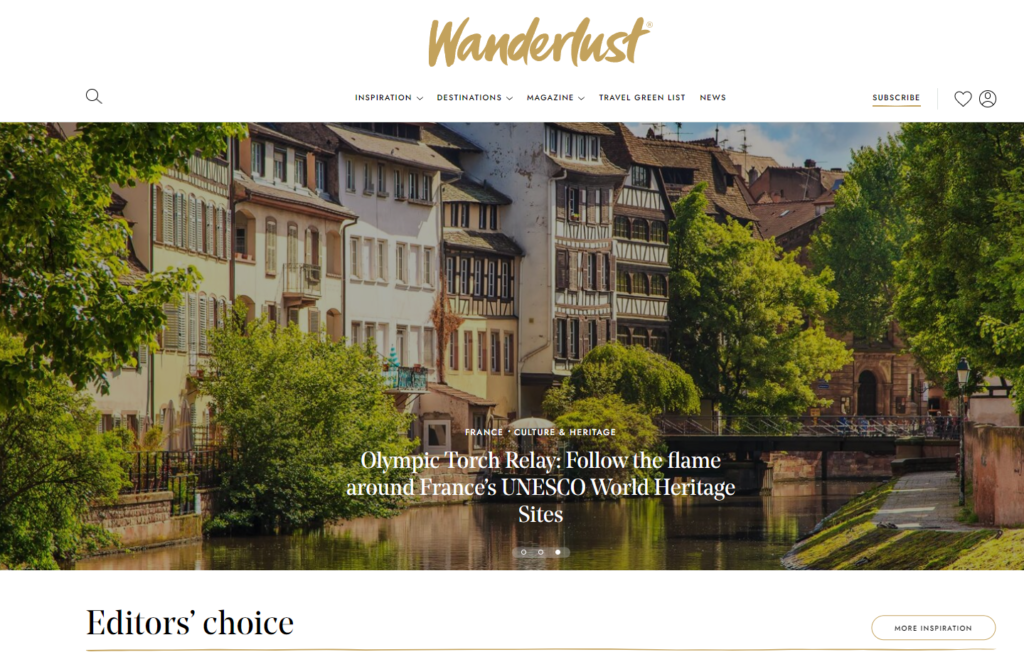Travel SEO: Boost Your Agency's Online Visibility and Attract Adventure-Seeking Clients
SEO Strategies for Travel Agencies and Tour Operators
In today’s digital landscape, having a strong online presence is essential for travel agencies and tour operators looking to attract potential travelers. Effective Search Engine Optimization (SEO) can significantly increase your visibility and help you reach more clients.
Here are some key strategies to implement:
Create a User-Friendly, Inspiring Website:
Ensure your website is mobile-responsive and loads quickly Use clear navigation to help visitors easily find destinations and travel packages Implement an intuitive structure with categories for different types of trips or destinations
Optimize Your Content:
- Write compelling, keyword-rich descriptions for each travel package or destination Create engaging travel guides that include relevant keywords and destination expertise Maintain a blog to share travel tips, destination insights, and customer experiences
Use Alt Text for Images:
- Add descriptive, keyword-rich alt text to all destination and travel images Include the location name, key attractions, and brief description in the alt text
Leverage Long-Tail Keywords:
- Target specific phrases like “luxury beach resorts in Bali” or “adventure tours in Patagonia” Use these keywords naturally in your content, titles, and meta descriptions
Create Virtual Tours:
- Offer 360-degree views of popular destinations or accommodations Provide virtual walkthrough experiences to engage potential travelers


Destination-Specific Keyword Optimization
Your travel destinations are the core of your online presence. Here’s how to optimize them for search engines:
Organize Your Destinations:
- Create separate pages or categories for different countries, regions, or types of vacations Use clear, descriptive URLs for each destination (e.g., www.youragency.com/thailand-beach-holidays)
Optimize Image Files:
- Use descriptive, keyword-rich file names for your destination images Compress images to ensure fast loading times without sacrificing quality
Implement Schema Markup:
- Use schema.org vocabulary for travel to provide structured data about destinations and packages Include information like prices, dates, itineraries, and included amenities
Create Detailed Destination Descriptions:
- Write unique, keyword-rich descriptions for each travel destination Include information about local attractions, cuisine, culture, and unique experiences
Showcase Traveler Testimonials:
- Feature reviews and testimonials from satisfied travelers Include schema markup for reviews to enhance their visibility in search results
Content Marketing for Travel Websites

Engaging content can significantly boost your SEO efforts and inspire potential travelers:
Develop Comprehensive Travel Guides:
- Create in-depth guides for popular destinations, covering attractions, accommodations, and local tips Optimize these guides with relevant keywords and internal links
Maintain an Active Blog:
- Regularly publish articles on travel trends, destination spotlights, and travel tips Use a mix of informational and inspirational content to engage different types of travelers
Create Visual Content:
- Invest in high-quality photography and videography of destinations Develop infographics about travel statistics, packing tips, or destination comparisons
Leverage User-Generated Content:
- Encourage travelers to share their experiences and photos Feature user-generated content on your website and social media platforms
Develop Interactive Tools:
- Create trip planners, budget calculators, or packing list generators Optimize these tools for relevant keywords and user engagement

Mobile SEO for On-the-Go Travelers

With many travelers using mobile devices for research and booking, mobile optimization is crucial:
Ensure Responsive Design:
- Make sure your website looks and functions well on all device sizes Optimize touch elements for easy navigation on smartphones and tablets
Improve Page Speed:
- Compress images and minify code to reduce loading times Utilize browser caching and content delivery networks
Optimize for Local Search:
- Implement local SEO tactics for travelers searching for activities or accommodations in specific locations Use schema markup to highlight location-based information
Focus on Voice Search:
- Optimize for natural language queries commonly used in voice search Create FAQ pages that address common traveler questions
Implement AMP:
- Consider using Accelerated Mobile Pages for faster loading on mobile devices Prioritize key landing pages and blog posts for AMP implementation

Seasonal SEO Tactics for the Travel Industry
The travel industry is highly seasonal. Here’s how to optimize for different times of the year:
Create Seasonal Landing Pages:
- Develop pages for specific seasons or holidays (e.g., “Best Christmas Markets in Europe”) Update these pages annually with fresh content and offers
Use Seasonal Keywords:
- Incorporate season-specific keywords into your content (e.g., “summer beach vacations” or “winter ski trips”) Start optimizing for seasonal content several months in advance
Develop Off-Season Content:
- Create content promoting off-season travel to various destinations Highlight unique experiences and potential cost savings of off-peak travel
Implement a Content Calendar:
- Plan your content strategy around peak booking times for different destinations Align your SEO efforts with seasonal travel trends and events
Utilize Schema Markup for Events:
- Use event schema for seasonal festivals, concerts, or sporting events at your destinations Include dates, locations, and ticket information in the markup

Case Study: Wanderlust Travel Success

- Challenge: Low online visibility for a boutique travel agency specializing in eco-friendly adventures
- Solution:Implemented comprehensive SEO strategy focusing on niche destinations and sustainable travel content
- Result: 300% increase in organic traffic to the agency’s website and 75% increase in eco-tour bookings within 8 months

